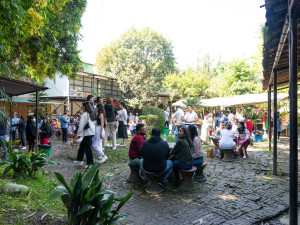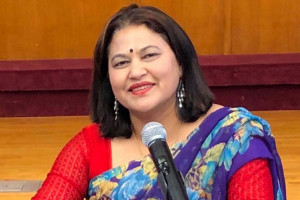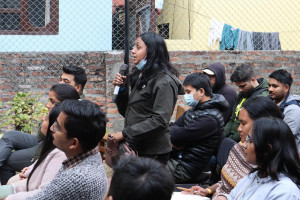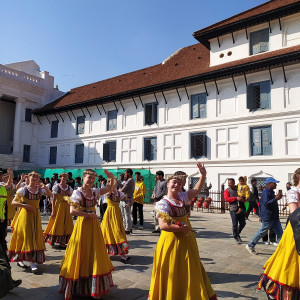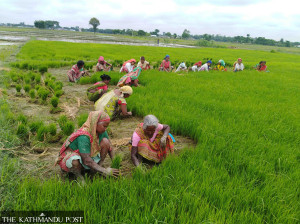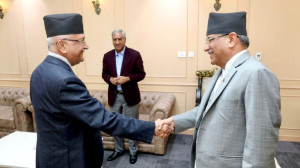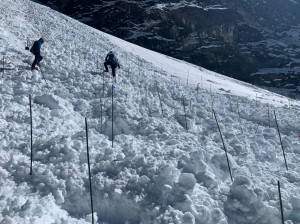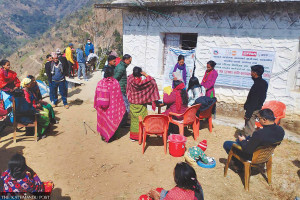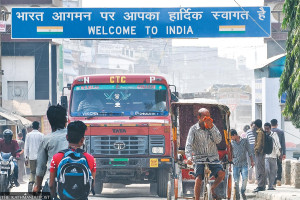 16.12°C Kathmandu
16.12°C KathmanduCulture & Lifestyle
The seamlessness of writing
Indian author and poet Janice Pariat talks about the intricacies of character development, genre exploration and the intersection of history and fiction.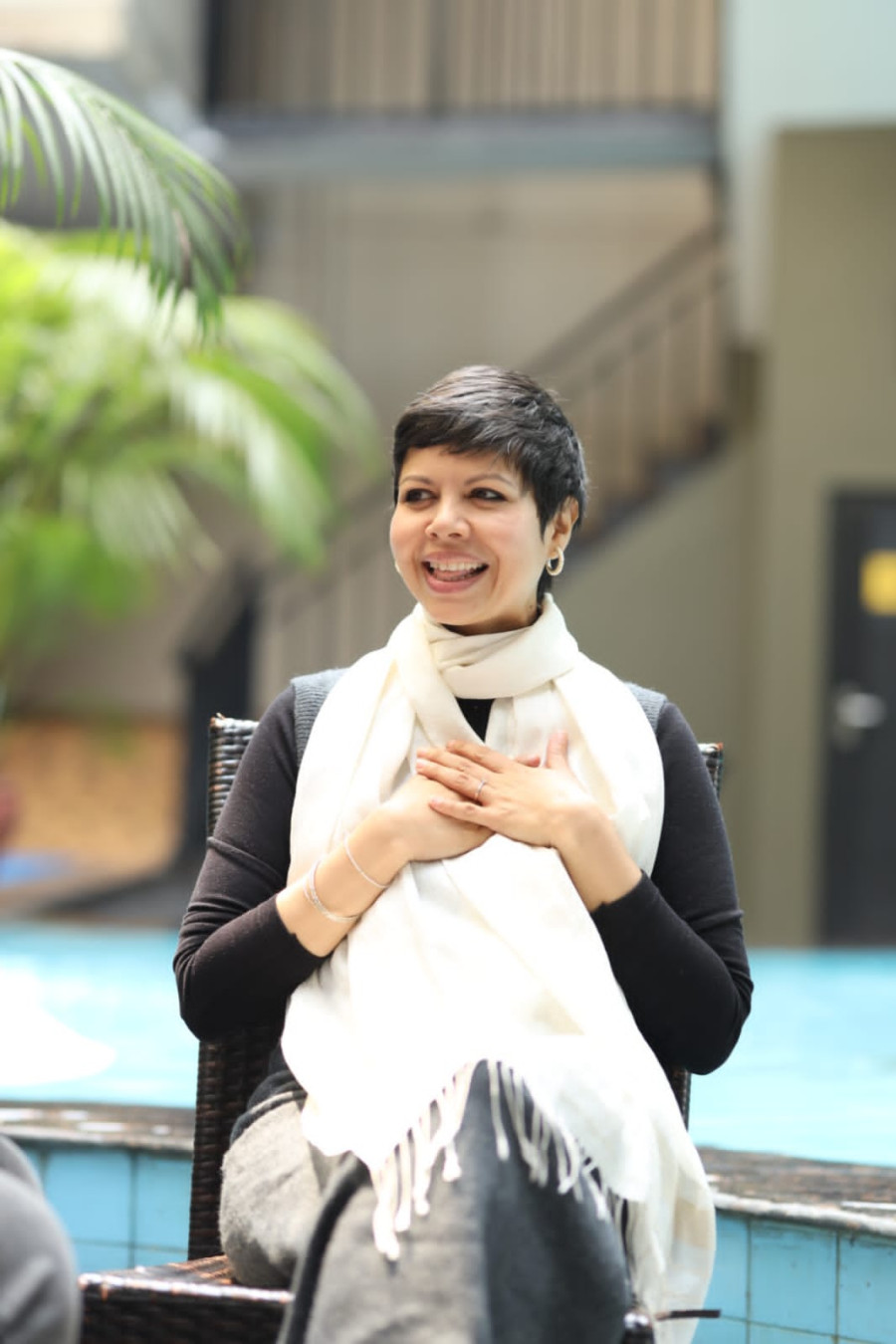
Manushree Mahat
A panellist in two sessions at the ongoing 11th edition of the Nepal Literature Festival, Janice Pariat is an Indian author and poet. She is also an assistant professor of creative writing and history of art at Ashoka University, India. She has penned several books, including ‘Boats on Land’, her debut short story collection, and her most recent ‘Everything the Light Touches’, which was long-listed for the JCB Prize for Literature 2023. In a session moderated by Prateebha Tuladhar, Pariat discussed the nuances of her writing journey.
Following the session on ‘The Art of Editing Fiction’, Pariat discussed the themes of her novels, the seamless nature of literature, and the trials and tribulations of being a writer with the Post’s Manushree Mahat.
In your session, you discussed your newest book, ‘Everything the Light Touches’, its experimental nature and unique palindromic structure. How important is it for writers to experiment with their prose and style?
I don’t really like to categorise my work as experimental, as that implies that some works are non-experimental, mainstream and normal. But what exactly is normal? And what is mainstream? I think we are all home to these strange and quirky stories because our life is like that.
For me, the essence of writing lies in challenging myself. I seek to be a new person and a different writer with each book. Literary obstacles demand that you evolve, becoming a fresh writer to address them. It’s not easy; you may question the purpose of your writing journey and feel uncertain about your path. However, with perseverance, overcoming these challenges becomes immensely rewarding, transforming you into the writer you've tirelessly worked to become. Change is inherent and as writers, we should embrace our fluidity just as we do in our personal lives.
How significant do you think genres are for authors? Do you feel constricted by the bounds of genres, or is that more of an afterthought?
As an author, I’m more concerned about where my story is taking me, the challenges I come across while curating the story and how I tackle them. I’m also concerned about the form of my text and how I need to tweak it to tell my story in an effective way. So, I don’t place myself or my work in any genre. I believe as writers and artists, we have the power to move through worlds and literary landscapes.
In all your books, the focus seems to consistently revolve around characters, their psyche, development and flaws. Is character development always a key aspect of your storytelling?
Certainly. Characters play a central role in all my writings, whether it's short stories or longer novels. As I mentioned earlier, my approach to writing characters has evolved over time. Interestingly, my first short story collection, ‘Boats on Land’, and my latest book, ‘Everything the Light Touches’, share thematic connections and explore similar landscapes, bringing us full circle. It's gratifying to traverse this literary map and return to where I began.
Right now, the characters I write and the stories I wish to tell through them explore the connection and relationship between humanity and the natural world. The urgent issues of climate change, the challenges facing our ecosystem, and my own questions about the environment and the world shape the essence of my characters now. In a way, it’s impossible for me to place my characters in a context that doesn’t accommodate this engagement with climate change.
Recently, I came across a poem describing the destructive nature of humankind towards nature. How do you address these issues and the relationship between nature and humans in your stories?
In ‘Everything the Light Touches’, all of my characters, in some way or the other, are botanists. They are directly engaged in the act of nourishing and nurturing plants and living green beings. They share a strong bond with the natural world in different ways.
Sometimes, the natural world becomes a spiritual place for self-discovery; for others, it is an escape from the constraints of the world. Some view it as exploration in the most philosophical sense—what does our relationship with the human world reveal about ourselves? There are various shades to their connection with nature, but most of them begin with a keen interest in botany.
How do you balance the historical and realistic elements of your story with the creative choices you make? How do you stay true to history while crafting your own stories?
I think they are closely linked. To borrow a word from a friend who is also a historian, ‘history is very elastic’. There are spaces in the narration of history where you, as a fiction writer, can intervene and place your characters amid historical situations that are factually correct and shaped in a way that suits your own creative pursuits.
In ‘Everything the Light Touches’, one of the characters undertakes a particular journey, and I did a lot of research, studying his diaries and letters, which then became a springboard for exercising some poetic literary licence. You can say that he had this conversation on this journey, but you’re not quite sure whether he did or not. History is malleable, and that works wonderfully for fiction writers.
What is your advice for aspiring writers?
We could spend an entire session on this topic. If writing is your passion, do everything possible to pursue it. Life is too short to restrain yourself from what you love. No one else can tell your story. However, unless you’re an extremely privileged writer, you’ll need a reliable source of income to prevent alienation from your passion. While making writing your sole income is possible, it can be mentally taxing. The stress of earning money might distract you from the story you want to tell when starting a new book. Personally, freelancing as just a writer was challenging. Finding a stable job that supports my writing has been crucial.





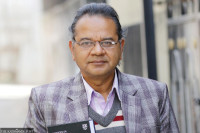

.jpg&w=200&height=120)




